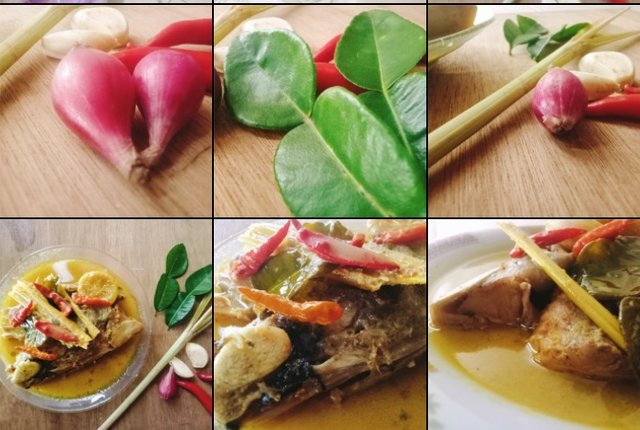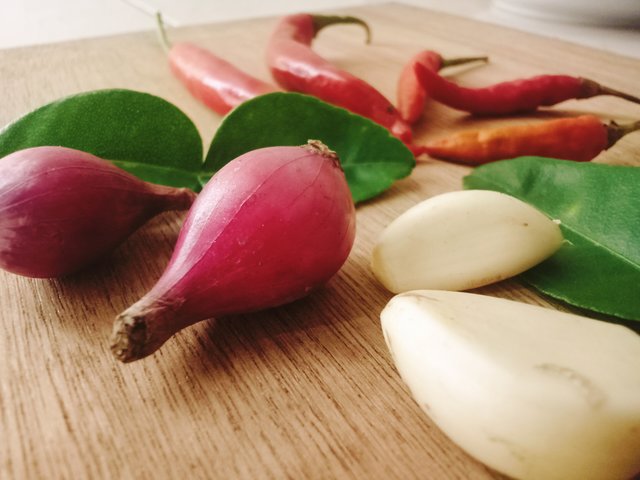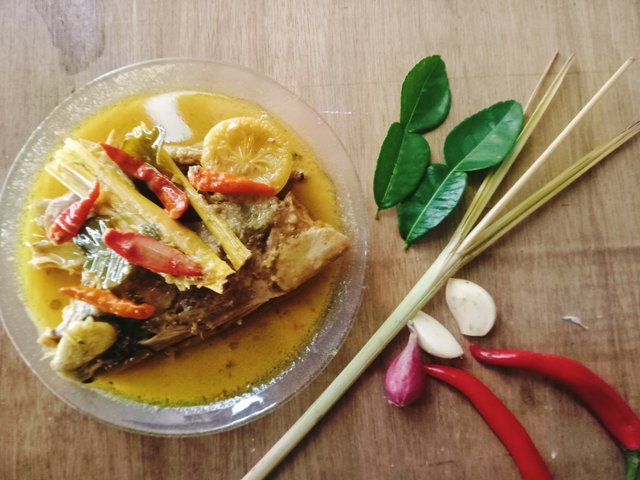
My son just came home for a long holiday break. He goes to a boarding school in Semarang, about four to five hours away from home. I think that distance is enough to let longing pile up, like laundry left unattended for too long. And this moment—his return—is always a big day in our household.
My wife and I agreed to welcome him with something special. Not a gift, and not a fancy trip either.
We decided to greet him with a dish that holds the taste of home, a specialty from our hometown in Indramayu. It’s called Gombyang.
If you’re unfamiliar, Gombyang is a kind of fish soup with yellow spices, its aroma like a nostalgic melody: gentle, warm, and instantly making anyone who smells it yearn for home.
Early this morning, we went to the market.
It’s a small market, just two minutes from our house. Close enough to walk, but we didn’t—because we’re not that ambitious.
The market was already bustling, as always. People chatting, bargaining, and occasionally laughing at jokes that probably weren’t even that funny.
We bought some fish and spices, the kind that could make even the simplest dish feel like a celebration.
When we got home, the cooking began. The kitchen came alive with sounds—chopping, stirring, the hiss of oil meeting ingredients. It was a comforting chaos, the kind that reminds you home isn’t just a place, but also the smell of food being made with love.

Ingredients:
Main Ingredients:
- 1 whole snapper or mackerel (cleaned and cut into pieces)
- 500 ml thin coconut milk
- 250 ml thick coconut milk
- 2 stalks of lemongrass (bruised)
- 3 bay leaves
- 2 kaffir lime leaves (remove the midrib)
- 2 cm galangal (bruised)
- Tamarind water as needed
- Salt and sugar to taste
Spice Paste:
- 6 shallots
- 3 cloves of garlic
- 2 cm turmeric (roasted)
- 3 candlenuts (toasted)
- 2 cm ginger
- 1 tsp coriander seeds
How I Cooked Gombyang
The fish had already been cleaned earlier, sitting quietly on the counter as if it knew its time had come. I started with the spices—shallots, garlic, turmeric, and a few others. They all went into the mortar, where I crushed them with just enough force to release their secrets.
The stove flickered to life, and the pan heated up. A splash of oil, then the spices joined the party. The sizzle was immediate, filling the kitchen with an aroma so rich it could tell a story.
I added coconut milk, slowly, like pouring a gentle rain over a warm earth. The liquid bubbled softly, carrying the scent of lemongrass and lime leaves. It wasn’t hurried; this was the kind of cooking that asks you to stay present, to let the flavors take their time.
The fish went in next. Piece by piece, I laid it into the broth, almost like tucking it in. It floated there, absorbing the spices, becoming part of something bigger.
When the dish was nearly done, I tasted it—a little salt here, a dash of tamarind there. It was a quiet kind of perfection, the kind that comes not from following rules but from trusting your instincts.
By the time the Gombyang was ready, the kitchen smelled like a memory waiting to happen. A bowl of it sat on the table, surrounded by warm rice and the soft hum of satisfaction.
Cooking it wasn’t just about making food—it was about creating a moment, one spoonful at a time.

We ate together, enjoying rice and Gombyang, where longing quietly began to dissolve.
It was a priceless moment—more precious than the cost of fish at the market this morning. It wasn’t just about eating; it was about talking. About everything and nothing at the same time.
The kids sat with us, though they were often more focused on their plates than our conversations. I watched them and thought, Maybe soon, they’ll be busy with their own lives. Independent. Living stories that don’t include us.
Time like this always feels fleeting, like the rice on our plates that somehow disappears too quickly. But maybe that’s why we savor it. Every bite, every small laugh, every second that won’t come back.
So, that’s the story. Thank you for reading this far. If there’s any Gombyang left, come over. Who knows? Maybe your longing needs healing too.
You've got a free upvote from witness fuli.
Peace & Love!
Downvoting a post can decrease pending rewards and make it less visible. Common reasons:
Submit